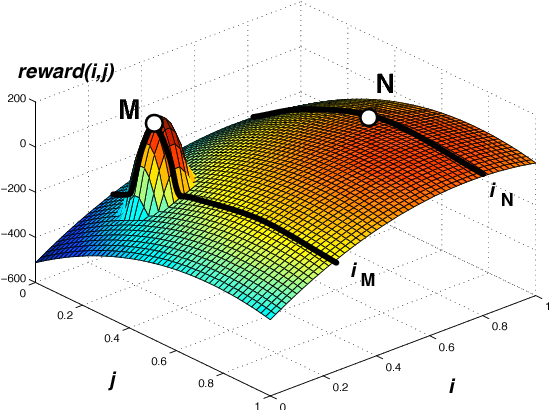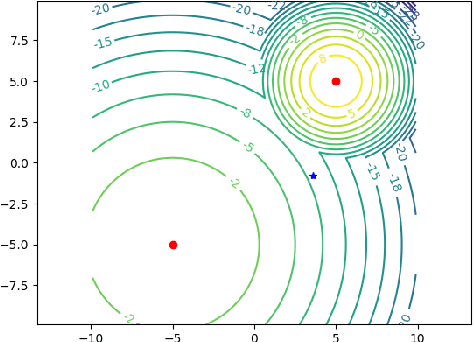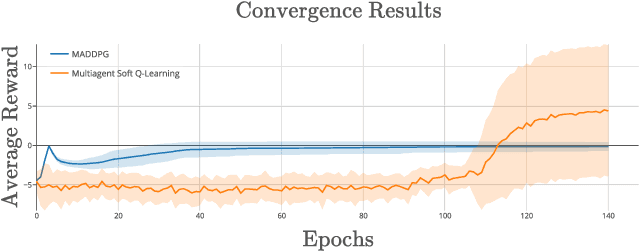Multiagent Soft Q-Learning
Paper and Code
Apr 25, 2018


Policy gradient methods are often applied to reinforcement learning in continuous multiagent games. These methods perform local search in the joint-action space, and as we show, they are susceptable to a game-theoretic pathology known as relative overgeneralization. To resolve this issue, we propose Multiagent Soft Q-learning, which can be seen as the analogue of applying Q-learning to continuous controls. We compare our method to MADDPG, a state-of-the-art approach, and show that our method achieves better coordination in multiagent cooperative tasks, converging to better local optima in the joint action space.
* Accepted in AAAI 18 Spring Symposium
 Add to Chrome
Add to Chrome Add to Firefox
Add to Firefox Add to Edge
Add to Edge